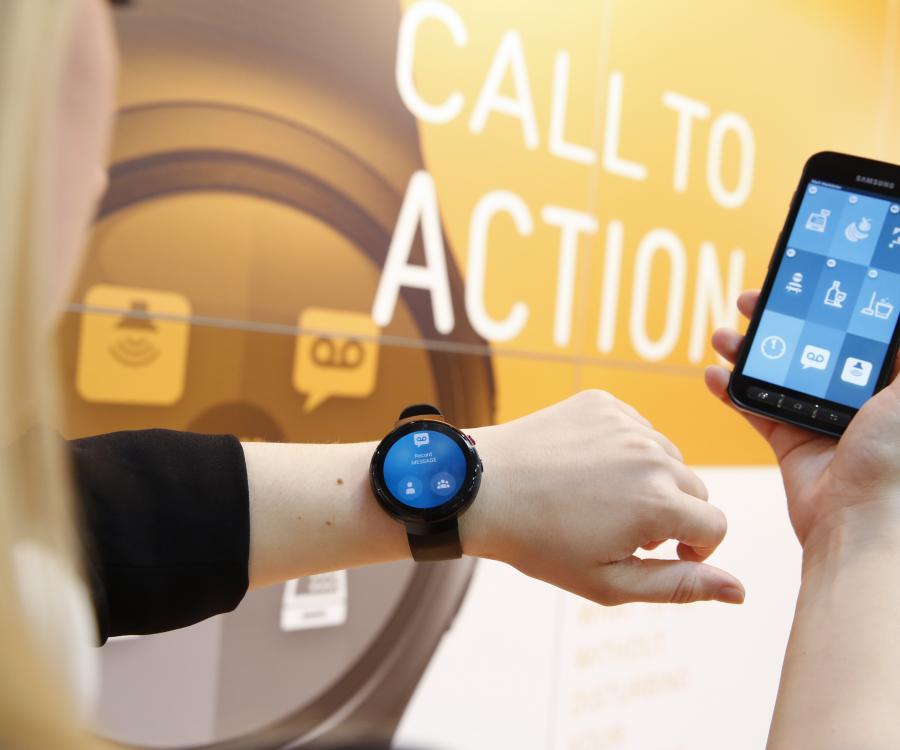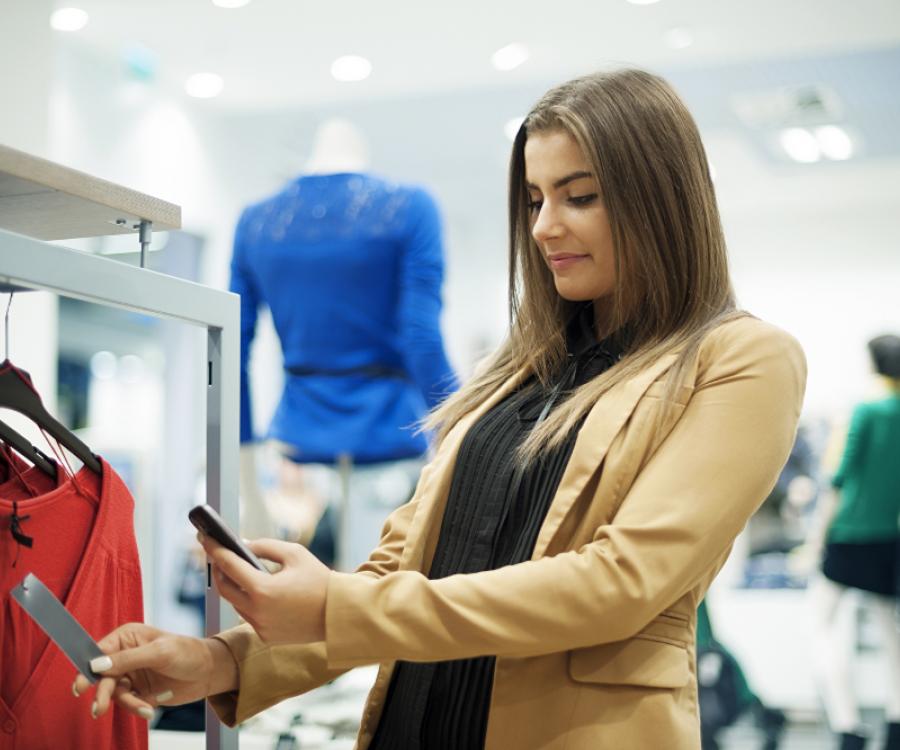
Mobility is quickly becoming a top-line consideration for retailers and organizations. For five years through December 2011, the number of wireless connections in the United States increased more than 42 percent to 331.6 million on annual industry service revenue of $169.8 billion, according to statistics from CTIA-The Wireless Association, which represents the wireless communications industry. Perhaps the most striking characteristic of users’ penchant for adopting wireless devices is texting; users are now sending out more than 193.1 billion text messages a month, a more than tenfold increase from December 2006.
What this means for retailers is that store associates, managers and other personnel are no longer seeking permission to bring their iPhones, iPads or Android devices to work with them. And as devices are becoming even more commonplace, workers don’t mind logging into a Wi-Fi network to check an order or search for product details to generate a sale. They don’t care whether the company is paying for the service or not, surveys show. For them, going to a browser is as easy as checking e-mail.
Employee-led initiative
"The fact of the matter is that the concept of employees bringing their devices to work that are not corporate-approved is really happening one way or another,” says Michele Pelino, principal analyst with Forrester Research.Forrester calls BYOD a component of the “consumerization of IT” where employees, in effect, are forcing the issue of how technology is accessed at work and what kinds of equipment are being used.
“Consumers on their own are going out and purchasing smartphone devices and tablets no matter what their organizations are doing because those devices are important to them on a day-to-day basis,” Pelino says. “They are knocking on the IT guy’s door to see if they can [get] e-mail on this device. It’s happening.”
Market researcher International Data Corp. (IDC) forecasts that worldwide total unit shipments for smart devices, primarily smartphones and tablets, will reach nearly 1.2 billion in 2012, a 27.4 percent increase from 2011. Worldwide equipment revenue for devices is forecast to be $131.5 billion in 2012, a 16.3 percent year-over-year increase, according to IDC.
For executives and IT staffs, the challenge becomes deciding the best approach to reconciling the phenomenon of smart devices in the hands of their employees in the workplace, Pelino says. Across all industries, some 60 percent of companies Forrester surveyed in July 2011 were allowing employees to use personal devices for work while providing support through IT for at least some of them.
Yet, as an emerging area of mobile retail, BYOD isn’t as simple as merely accommodating employee devices on the network: It represents a consequential change in the way workplaces have co-existed with and supported technology. It speaks to a company’s culture and approach to IT policies, network capability, privacy and security, acceptable-use, allocation of corporate resources, employee satisfaction and legal liability, among other considerations.
“The opportunity for an enhanced retail experience in the store is astronomical by use of smartphones, tablets and apps,” says Diana McHenry, director of global retail marketing for SAS. “The harder job right now is the bring your own device part. Once you start thinking about that there are a lot of other factors.”
Separating corporate and personal
Vendors offering services to workplaces for enterprise device management say organizations need to develop focused strategies for BYOD. “It’s really important that you have at least a basic strategy for how you are going to approach it,” says Colin Haig, retail program principal for SAP AG, the enterprise software vendor that offers its Afaria solution for managing BYOD programs. “As people are building out the strategy, they have to look at where to start and how to do it safely and incrementally.”
One feature of the SAP BYOD software platform is that it draws a virtual line in the sand over what is corporate and what is personal, while outlining how applications and data on the personal device used at work are to be managed. Additionally, the software will separate and eliminate corporate applications and content from the personal device if a person were to leave the organization, Haig says.
“You’ve got to be able to provide that enterprise information to them and you’ve got to give them assurance you’ll keep corporate information and personal information separate, particularly if it is their own device,” he says. “If they want the privilege of getting corporate information on their personal device, they have to understand the security policies and other related policies.”
MobileIron, a company that provides support to organizations for enterprise mobility, offers a checklist of considerations for BYOD deployment. Among the actions it recommends: analyze employee preference to know devices they already have purchased; define an acceptance baseline for security and supportability; establish clear communication to users about devices that are allowed or not allowed and why; communicate compliance issues clearly to employees; identify and assess risk for common security issues on personal devices; commit resources to build apps for personal devices used at work; assess liability for usage onsite vs. offsite and work hours vs. non-work hours; and evaluate BYOD reimbursement models and their impact on the organization.
Satisfaction and empowerment
Haig says BYOD in retail is evolving in phases — and not necessarily in obvious areas. The trend, he says, encompasses two extremes: “The CEO coming in and pounding on the desk and saying, ‘I bought this iPad thing and I want my e-mail on it’ and staff like district and regional managers visiting stores in the field and saying, ‘Why can’t I do a product look up on my own smartphone’ instead of having to run to a green-screen terminal or cash register.”
Haig advises retailers to examine opportunities for BYOD from the view of different levels and roles within the organization. For instance, providing BYOD capability to district and regional managers offers a promising way to initiate a program because they can make good use of up-to-date business analytics with their personal devices to support store performance.
“Those folks are a smaller group than trying to roll out to 10,000 or 100,000 store associates,” he says. “They are mobile, their skill level tends to be a little higher and their need for information tends to be a little higher.”
McHenry says when retailers do have full BYOD programs for their legions of store associates, it will mark a major change in the retail store environment. BYOD is viewed as a positive opportunity to enhance store employee morale while helping to bring the store environment into the future. The key, she says, is to build the BYOD experience around customer satisfaction and employee empowerment.
“If they have a device, it is hard to tell if they are looking something up or texting a friend,” McHenry says, “but if you have rewards systems and you’ve got the dynamics where you really have a customer service mentality in the store, BYOD can work.”








